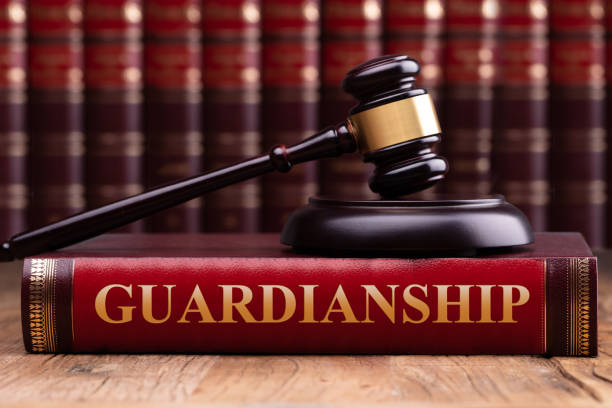When an individual assumes the role of guardian in Texas, they take on a significant responsibility. Guardians are entrusted with the care and well-being of their wards, who may be minors or incapacitated adults. As part of their duties, guardians must adhere to strict annual reporting requirements established by Texas law. These reports ensure that guardians are fulfilling their obligations and that the rights and interests of the wards are protected. This article delves into the specifics of these annual reporting requirements, providing a detailed guide for guardians in Texas.
Understanding Guardianship in Texas
Before exploring the annual reporting requirements, it’s essential to understand the concept of guardianship in Texas. Guardianship is a legal relationship in which a court appoints a guardian to make decisions for a ward who is unable to manage their own affairs. There are two main types of guardianships in Texas:
- Guardianship of the Person: This type of guardianship involves making decisions about the ward’s personal and medical care, including living arrangements, healthcare, and daily activities.
- Guardianship of the Estate: This type involves managing the ward’s financial affairs, including paying bills, managing assets, and handling income and expenses.
In some cases, a guardian may be appointed for the person and the estate, known as a “full guardianship.”
Annual Reports
Annual reports are formal documents that provide comprehensive information about an organization’s activities, financial performance, and overall condition over the course of a year. These reports are essential tools for ensuring transparency, accountability, and informed decision-making among stakeholders, including shareholders, regulators, employees, and the general public. Annual reports serve several critical purposes in the guardianship process:
- Accountability: They ensure guardians are held accountable for their actions and decisions, providing a transparent record of how the ward’s personal and financial affairs are managed.
- Protection: These reports help protect the ward’s rights and interests, ensuring that they receive appropriate care and that their assets are managed responsibly.
- Oversight: The court reviews these reports to oversee the guardian’s performance and intervene if necessary, ensuring that the guardian is acting in the ward’s best interests.
Types of Annual Reports

Guardians in Texas are typically required to submit two types of annual reports:
- Annual Report of the Person: This report provides information about the ward’s well-being, living conditions, and medical care.
- Annual Account (for guardians of the estate): This report details the ward’s financial status, including income, expenses, and asset management.
Let’s examine each of these reports in detail.
Annual Report of the Person
The Annual Report of the Person focuses on the ward’s personal and medical care. Guardians must provide comprehensive information to demonstrate that they meet the ward’s needs. The report typically includes the following sections:
Personal Information
This section requires the guardian to provide basic information about the ward, including their name, date of birth, and current living address. The guardian must also include their contact information.
Living Arrangements
Guardians must describe the ward’s current living situation, including the type of residence (e.g., private home, assisted living facility, nursing home), and any changes in living arrangements over the past year. Details about the living conditions and the suitability of the environment for the ward’s needs should be included.
Health and Medical Care
Guardians must provide information about the ward’s health status, medical conditions, and any treatments or therapies they receive. This section should include details about regular medical check-ups, medications, hospitalizations, and any changes in the ward’s health over the past year.
Daily Activities and Socialization
Guardians must describe the ward’s daily activities, including any social, recreational, or educational activities they participate in. This section should highlight efforts to promote the ward’s socialization and overall well-being.
Guardian’s Assessment
The guardian should provide a personal assessment of the ward’s overall well-being, including any concerns or challenges faced in the past year. This section allows the guardian to express their observations and insights about the ward’s condition and care.
Plans for the Coming Year
Guardians must outline their plans for the ward’s care in the upcoming year. This may include any anticipated changes in living arrangements, healthcare, or other aspects of the ward’s life.
Annual Account (for Guardians of the Estate)
Guardians of the estate are responsible for managing the ward’s financial affairs and must provide an Annual Account detailing the ward’s financial status. This report includes several key components:
Beginning Balance
The report should start with the beginning balance of the ward’s estate at the start of the reporting period. This includes all assets and funds under the guardian’s management.
Income

Guardians must itemize all sources of income received by the ward during the reporting period. This may include Social Security benefits, pensions, rental income, dividends, and any other sources of income. Each source should be listed with the corresponding amounts.
Expenses
Guardians must provide a detailed account of all expenses incurred on behalf of the ward. This includes payments for housing, utilities, medical care, groceries, transportation, and any other necessary expenditures. Receipts and documentation for these expenses should be maintained for verification.
Asset Management
This section should detail any changes in the ward’s assets, including purchases, sales, or other transactions involving real estate, investments, and personal property. Guardians must explain the rationale behind these transactions and how they benefit the ward.
Ending Balance
The report should conclude with the ending balance of the ward’s estate at the end of the reporting period. This includes the total value of all assets and funds after accounting for income and expenses.
Supporting Documentation
Guardians should attach supporting documentation to the report, including bank statements, receipts, invoices, and any other relevant financial records. This documentation helps verify the accuracy of the information provided.
Filing and Submission Requirements
Guardians must adhere to specific filing and submission requirements for their annual reports:
Deadline
Annual reports are typically due on the anniversary of the guardian’s appointment. Guardians should mark this date on their calendar and plan ahead to ensure timely submission.
Form and Format
The Texas Judicial Branch provides standardized forms for the Annual Report of the Person and the Annual Accounts. Guardians should use these forms to ensure consistency and compliance with court requirements.
Notarization
In some cases, you may need to notarize reports before submitting them. Check with your local court to determine if you need notarization.
Copies
Guardians should prepare multiple copies of their reports, including one for their records and additional copies as required by the court.
Court Review
Once submitted, the court will review the reports to ensure compliance with legal requirements and assess the guardian’s performance. The court may request additional information or clarification if it identifies any issues or discrepancies.
Common Challenges and Tips for Guardians
Fulfilling annual reporting requirements can be challenging, but with careful planning and attention to detail, guardians can navigate the process successfully. Here are some common challenges and tips to help guardians meet their obligations:
Organizational Skills
Maintaining organized records is crucial. Guardians should keep detailed and accurate records of all transactions, communications, and activities related to the ward’s care and finances.
Timely Documentation
Documenting activities and expenses in real time helps prevent last-minute scrambling. Guardians should establish a routine for recording information regularly.
Seeking Professional Assistance

Guardians may benefit from consulting with legal or financial professionals, especially when dealing with complex financial matters or legal requirements.
Communication
Regularly communicating with the ward, their family, and other relevant parties ensures that everyone stays informed and aligned. This can prevent misunderstandings and conflicts.
Education and Training
Guardians should use available resources, including training programs and workshops, to enhance their knowledge and skills in guardianship matters.
Conclusion
Being a guardian in Texas is a significant responsibility that requires dedication, diligence, and a commitment to the ward’s well-being. Annual reporting requirements are critical to this role, ensuring transparency, accountability, and protection for the ward. By understanding and fulfilling these requirements, guardians can provide the best care and support for their wards while adhering to Texas probate law. This comprehensive guide is a valuable resource for guardians, helping them navigate the complexities of annual reporting with confidence and competence.







